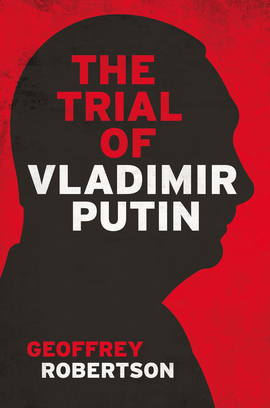
There have been dozens of books about the Russian President Vladimir Putin since he launched his illegal invasion of Ukraine in February 2022. Some have examined the historical aspects of the conflict, others have analysed its military and geopolitical importance. However, none so far have looked purely at the legal consequences of that disastrous action.
This remarkable survey by one of our most celebrated human rights lawyers examines how the war in effect destroys the purpose of the United Nations by exposing the fatal flaw in its 1945 Charter: all five permanent UN members have a veto on any Security Council action. Russia cannot be expelled from the General Assembly for breaching the Charter without a Security Council recommendation, which Russia itself can veto!
Geoffrey Robertson looks at the difficulties of bringing Putin to trial and why the popular campaign for a court to try him in absentia would not work; gives an explanation of the International Criminal Court charges he already faces; and surmises that any future peace agreement would include an amnesty for Putin (though, that amnesty would not be valid in international law).
Putin is plainly guilty of the crime of aggression. But, asks Robertson, does the Bush doctrine of ‘pre-emptive self-defence’, developed to justify his invasion of Iraq, provide Putin with an opt-out? And could the ‘tu quoque’ defence (‘I did it, but you did it first’) be raised at Putin’s trial, as it was for Admiral Dönitz at Nuremberg?
This brilliant deep-dive into international law offers a unique perspective on an unjust war that has cost the lives of hundreds of thousands of people and threatens to overturn the accepted world order, through the lens of its key protagonist.